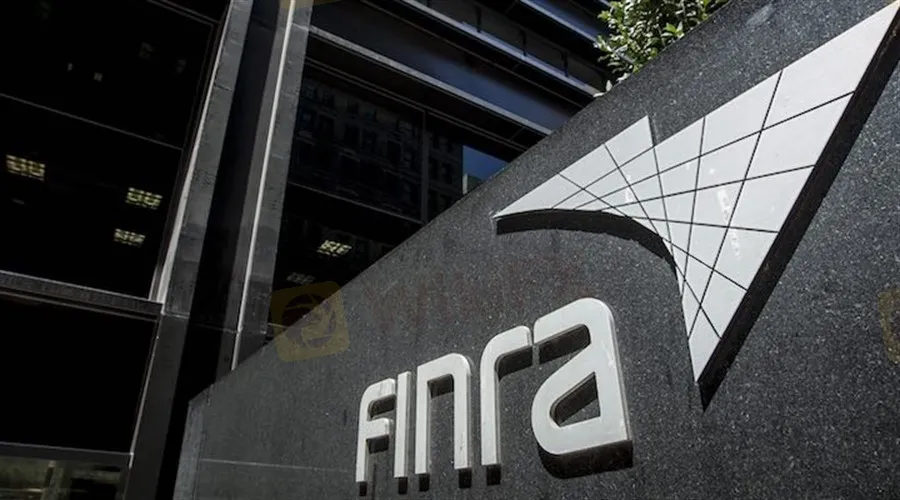简体中文
繁體中文
English
Pусский
日本語
ภาษาไทย
Tiếng Việt
Bahasa Indonesia
Español
हिन्दी
Filippiiniläinen
Français
Deutsch
Português
Türkçe
한국어
العربية
FINRA Fines RBC Capital Markets $360k for Supervisory Failure
Abstract:The failure occurred between June 2018 and February 2020. FINRA recently fined RBC Capital Markets $90k over anticipatory hedging violations.

The Financial Industry Regulatory Authority (FINRA) has hit RBC Capital Markets, a Toronto-headquartered global investment bank, with a censure order and monetary fine of $360,000 for the failure of its supervisory system between June 2018 and February 2020.
Take Advantage of the Biggest Financial Event in London. This year we have expanded to new verticals in Online Trading, Fintech, Digital Assets, Blockchain, and Payments.
The bank, whose principal place of business is in New York, the United States, provides securities transaction and clearance services to its customers and those of its introducing brokers.
FINRA, a membership-based self-regulatory body, said the penalty is for the company‘s failure to “timely or reasonably monitor thousands of employee outside brokerage account statements for compliance with the firm’s trading restrictions” within the period.
The restrictions relate to RBC Capital Markets policies on pre-clearance and holding periods, among others.
The private American regulator said the financial services provider contravened FINRA Rules 3110 and 2010 which demand the supervision of associated persons working for its members firms and also the maintenance of high standards in dealings.
Earlier in June, FINRA also slammed a censure order and a monetary penalty of $90,000 on RBC Capital Markets following Cboe Exchange's allegation of anticipatory hedging allegations against the company.
More Details on the New Fine
According to FINRA, RBC Capital Markets between June 2018 and February 2020 failed to put in place a reasonably designed supervisory system, including written supervisory procedures, to timely review paper statements from employees' outside accounts.
“For example, the firm had no prescribed timeframe to track, reconcile, and review statements. As a result, and due to the manual nature of the paper statement review process, personnel turnover, and outdated technology systems, as of February 2020, the firm had a backlog of approximately 8,950 unreviewed account statements, with some dating as far back as June 2018,” FINRA explained.
The review of the backlog was not completed until February 2021, FINRA said.
The financial watchdog further disclosed that RBC Capital Markets manually tracked receipt of paper statements, had no system in place to notify the firm or employees that statements were missing, and had no procedure for following up on missing statements.
“As a result, in some instances, the firm did not receive paper statements for review. For example, after the firm identified the backlog of unreviewed statements described above, it discovered that approximately 2,600 additional statements had not been mailed to the firm,” the markets supervisor said.
FINRA and Dealerweb
Meanwhile, FINRA recently slapped a $100,000 fine on Dealerweb Inc., an operator of an electronic interdealer platform for mortgage-backed securities.
Dealerweb inaccurately reported approximately 180,000 transactions in TRACE-eligible securities to the FINRA Trade Reporting and Compliance Engine (TRACE) between July 2016 and December 2020, the regulator said.

Disclaimer:
The views in this article only represent the author's personal views, and do not constitute investment advice on this platform. This platform does not guarantee the accuracy, completeness and timeliness of the information in the article, and will not be liable for any loss caused by the use of or reliance on the information in the article.
Read more

Olymptrade Under Fire – Fraud Allegations and Investor Outrage
The message is loud and clear for Olymptrade - Get your act RIGHT or continue to face fraud allegations and investor outrage. With investor complaints refusing to stop, Olymptrade has all but lost trust and goodwill.

Busted! 5 Brokers Blacklisted by the FCA
The FCA (Financial Conduct Authority) warns people about unauthorised brokers—operating without a proper license. If a broker is unregistered, you have no legal protection or refunds if they take your money or fail to handle it properly. FCA has recently blacklisted.5 scam brokers. Checkout the List Below.

Is the Forex Bonus a Genuine Perk or Just a Gimmick?
Have you received a forex bonus offer from a broker? Wondering whether it is a pure marketing ploy to make you a client? Your doubt makes sense! Explore this story where we have uncovered details regarding forex deposit bonus, no deposit bonus, and other types.

FXnice Review – A Trail of Scams, Poor Support & Misleading Strategies
FXnice, surprisingly, is not proving nice for forex traders all over. Traders have been requesting the company officials to allow them to withdraw their funds. However, these officials provide them a false reason, i.e., unverified accounts for withdrawal denials. Inaccurate technical tools and incompetent analysts further add to the investors' woes. Dive into this much-awaited exposure story on FXnice.
WikiFX Broker
Latest News
Brexit made businesses abandon the UK. Trump's hefty EU tariffs could bring them back
Mastering Deriv Trading: Strategies and Insights for Successful Deriv Traders
U.S. doubles down on Aug. 1 tariffs deadline as EU battles for a deal
Buffett and Thorp’s Secret Options Strategies
Trading Market Profile: A Clear and Practical Guide
CNBC Daily Open: Investors dismiss Trump administration's beef with the Fed — S&P hits new high
Sharing Trading Mistakes and Growth
Eyeing Significant Returns from Forex Investments? Be Updated with These Charts
Want to be Sure of a Forex Settlement Process? Read This IMPORTANT Guide!
Can We Just Skip To Next Week
Currency Calculator


